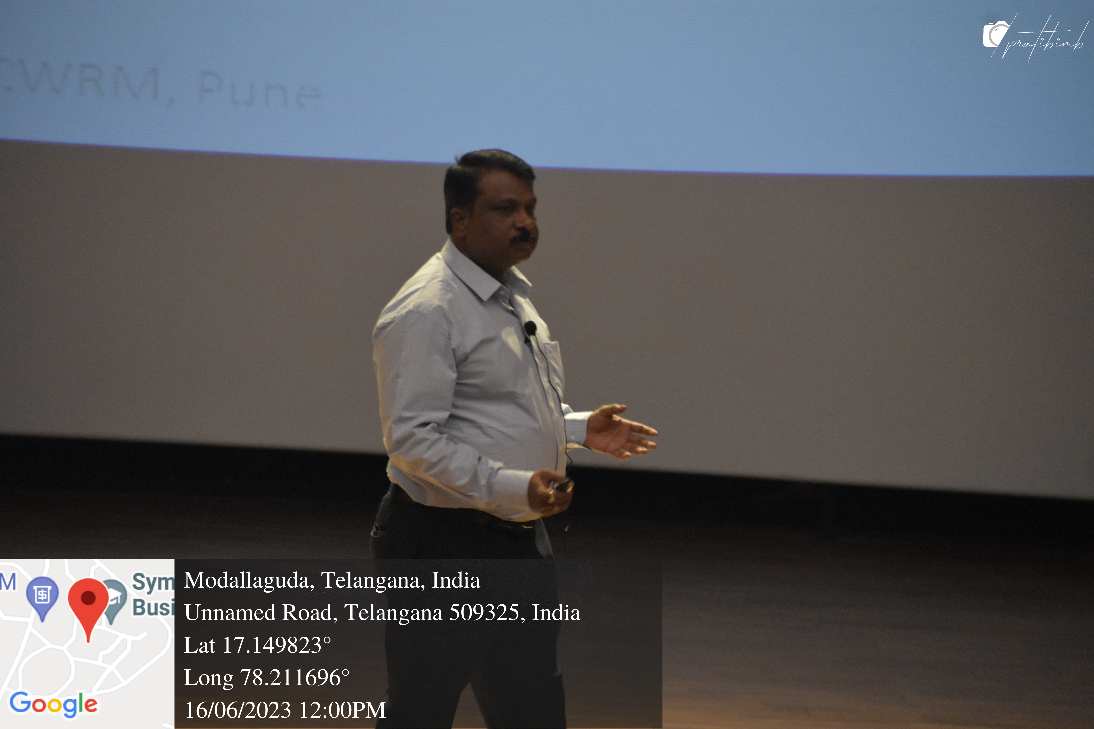Guest Lecture on Waste Resource Management by Mr. Uday Shankar
Guest Lecture on Waste Resource Management by Mr. Uday Shankar
Event Name: Guest Lecture on Waste Resource Management by Mr. Uday Shankar
Objectives: To Raise awareness about environmental sustainability and waste-resource management and also to promote sustainable waste management practices and the concept of a circular economy. Another main objective of the event is to empower students to take personal responsibility and inspire action towards environmental sustainability. The event is planned as part of World Environment Fortnight as well as the Induction Program.
Outcomes: The event increased awareness among students about the importance of environmental sustainability and the negative impacts of unsustainable practices. The students gained the knowledge and understanding of practical waste management strategies, including waste reduction, reuse, recycling, and composting techniques. Which in turn empowered students who are motivated to adopt eco-friendly habits, promote waste reduction, and become agents of change in their communities.
Report
Shakti – Women Development and Social Responsibility cell of SIBM-Hyderabad has attended a guest lecture on Waste Resource Management on 16th June 2023 for the MBA batch of 2023-2025. The topic of "Environmental Sustainability and Waste-Resource Management" was organized by Symbiosis Centre for Waste Resource Management. The lecture aimed to create awareness among students about the importance of environmental sustainability and the effective management of waste resources. The guest speaker for the session was Dr.Manikprabhu Dhanorkar, an environmental expert with extensive experience in the field of waste management and sustainable practices.
The speaker began the lecture by providing an overview of environmental sustainability. Environmental sustainability refers to the responsible use and conservation of natural resources to meet present and future needs without compromising the ability of future generations to meet their own needs. It involves taking into account the ecological, economic, and social aspects of resource management.

(Dr. Manikprabhu Dhanorkar addressing the gathering)
The speaker highlighted the harmful effects of unsustainable practices on the environment. These include air and water pollution, deforestation, depletion of natural resources, climate change, and loss of biodiversity. It was emphasized that addressing these issues is crucial for the well-being of both current and future generations. The lecture focused on waste-resource management as a key component of environmental sustainability. Effective waste management involves reducing, reusing, and recycling waste materials to minimize their negative impact on the environment. The speaker emphasized the importance of adopting a circular economy approach, where waste is seen as a valuable resource that can be reused or repurposed.
Various strategies for waste reduction were discussed during the lecture. These included promoting responsible consumption, encouraging the use of eco-friendly products and packaging, implementing waste segregation and recycling programs, and raising awareness about the importance of waste reduction at individual and community levels. During the guest lecture, the speaker primarily emphasized the concept of waste to wealth. This concept revolves around the idea of converting waste materials or byproducts into valuable resources or products, resulting in both economic and environmental benefits. The focus was on transforming waste materials that would typically be discarded and could potentially harm the environment into useful or marketable items. By doing so, this process not only generates income but also reduces the overall waste burden.
One particular area of discussion was composting, which many individuals tend to avoid due to the unpleasant odor it can produce. However, several methods have been introduced to address this issue. Symbiosis Centre for Waste Resource Management has developed composting techniques that effectively eliminate any foul smell while simultaneously producing a pleasant citrus fragrance. The lecture highlighted the call to action for individuals to contribute to environmental sustainability. Students were encouraged to adopt eco-friendly habits in their daily lives, such as reducing water and energy consumption, practicing proper waste segregation, supporting recycling initiatives, and spreading awareness about environmental issues within their communities. The lecture concluded with an impactful slogan- My Waste, My Responsibility, creating a huge impact on the students.

